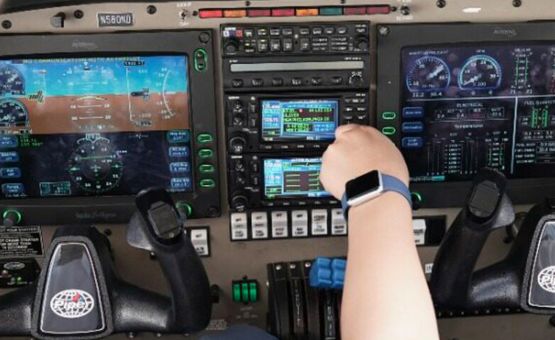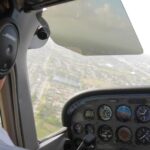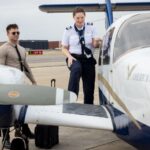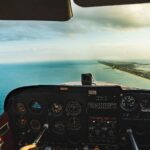By Time Genc
A while back, after my certified flight instructor course, I took a motorcycle safety course and it was one of the most unique motorcycle courses I have taken thus far: it was all about how to lay down a motorcycle. That’s right, it was two days of bringing the bike to the ground on its side – while driving – and sliding the bike across the ground to avoid a collision. Honestly, the course was a blast, but it was training for a situation that I hope never occurs. Having said that, it was training that made me a much better rider, and there were several lessons and skills that I have put to good use during everyday trips.
So what does this little story have to do with aviation and flight training?
I talk to a lot of people who do not want to get an instrument rating because they never plan on flying in the clouds, and I think that is a very good and cautious mindset. After all, flying in hard IMC for hours at a time is not fun and is not relaxing. In fact, in many ways, it is the opposite of the ideal aviation experience – we want to get up above the Earth and look around, right? So, why would anyone want to learn to fly so they could look out their window and see nothing but the grey, soupy clouds?
They wouldn’t. So for that reason, they should get an instrument rating. IFR training brings us into the clouds, just so we can be taught how to get out of them and back into the VFR weather.
Think about the purpose of an instrument approach. It is not a procedure to land an airplane, it is a procedure to safely get below the clouds. Think about the factors that go into picking a cruising altitude for a cross-country flight. We take winds and aircraft performance into consideration, but we also take cloud tops into account because we want to look around at the world outside. Think about how much fun it is to fly yourself to your next business trip or family vacation. It is a whole lot of fun for everyone involved to be looking outside, but if there is a thin cloud layer at your departure or destination airport, you need that instrument rating to get through that one cloudy spot to enjoy the rest of the journey … or you cancel the whole flight. You are going to learn to use a cornucopia of other aviation resources in IFR training that will make you a better VFR pilot. In a lot of ways, instrument training is like that motorcycle safety course; while you may not necessarily have to deal with all of the scenarios for which you prepare, what you learn will make you a better pilot/biker.
“IFR training brings us into the clouds, just so we can be taught how to get out of them, and back into the VFR weather.”
The fact is, more than 50% of all pilots will eventually get an instrument rating, whether it is for the needed flexibility for their business or recreational flying, to improve their flying skills or to continue collecting ratings. Some just start trying to learn emergency basic attitude flying skills in the event that they find themselves in low visibility conditions. After a few lessons, when they’ve learned about some of the radar services that can be provided to a VFR pilot in IMC, they want more education and to better understand the role that ATC can play in assisting them.
Before very long, these students find themselves more than halfway through an instrument rating, and it only makes sense to complete the training. Even if a pilot never files or flies under IFR, they still have the education to use it when they need it—it’s just like knowing how to best lay down a motorcycle to avoid a collision.
Instrument training doesn’t teach you how to get into the clouds, it gives you the ability to get out of them and back to the VFR weather, and it gets you back in the classroom where good pilots are always learning. Consider that you are going to fly the time anyway.
You need a flight review at some point, even after your certified flight instructor course, you need to get your currency to carry passengers whether day or night, and you become a pilot because you like flying, right? Get something more than just an endorsement or logbook entry for your next few flights; start some very basic instrument training. You might be pleasantly surprised – and one day thankful – for what you learn.










